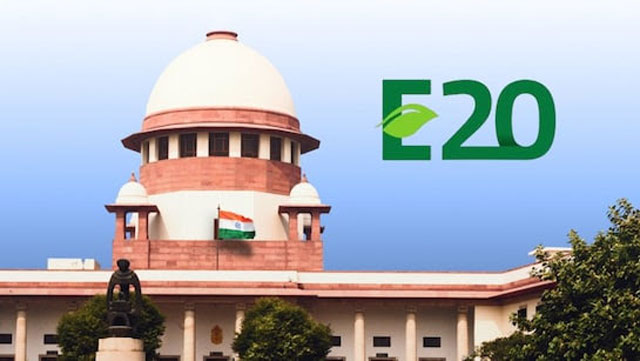Daijiworld Media Network – New Delhi
New Delhi, Aug 29: The debate around the usage of E20 fuel has intensified as several vehicle owners voiced concerns on social media, claiming a significant drop in mileage after using the blended fuel. The Government of India had introduced E20 petrol (20% ethanol, 80% petrol) in April 2023 to reduce carbon emissions and support its sustainability goals. However, many car and motorcycle users with older, non-E20-compatible vehicles say they have been left with no alternative.
Advocate Akshay Malhotra has filed a Public Interest Litigation (PIL) in the Supreme Court challenging the government’s ethanol blending mandate. The case will be heard on September 1, by a bench headed by chief justice BR Gavai, along with justices K Vinod Chandran and NV Anjaria.

According to reports, the PIL seeks two key measures:
The option for consumers to have E0 petrol (pure petrol) available at fuel stations.
Mandatory labelling of ethanol content in petrol sold.
Since the controversy erupted, the Government of India has issued several clarifications. The Ministry of Petroleum and Natural Gas, in a post on X, said: “Ethanol, being lower in energy density than petrol, results in a marginal decrease in mileage, estimated at 1-2% for four-wheelers designed for E10 and calibrated for E20, and around 3-6% in others. This marginal drop can be minimized through better engine tuning and the use of E20-compatible materials, which leading automobile manufacturers have already adopted.”
The ministry further dismissed rumours that using E20 would void vehicle insurance, confirming that there would be no impact on policy validity. It also clarified that India will not move beyond E20 before October 2026, though higher blending levels are planned for the future.
With the PIL now before the apex court, the outcome could set the course for India’s ethanol-blending policy — balancing its green energy goals with consumer convenience.